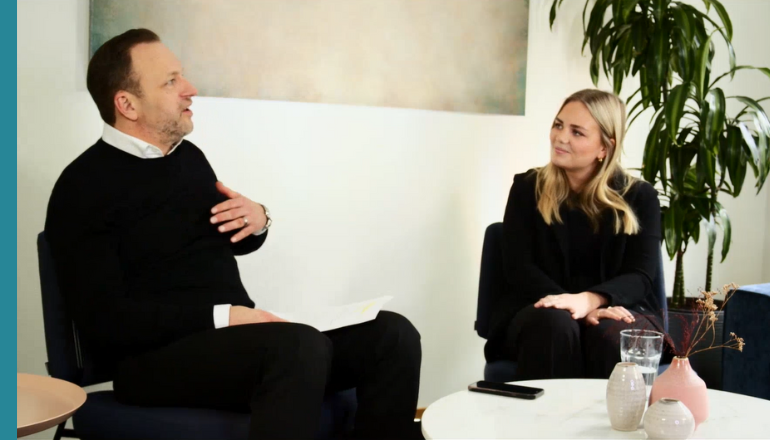Communication is often seen as subjective and a matter of having the right gut feeling rather than something rational and quantifiable. However, this approach diminishes the importance of efficient, brand-building communication. The fact is that communication can make or break an entire brand. Why leave something so crucial to gut feelings and luck?
Earlier this month, we hosted a live webinar on “Setting Goals for Social Media and Measuring Success.” During the webinar, we dove into the importance of strategic goal setting, measuring your communication efforts, and what to measure. We also learned all about how Hammarby Football Club reached its tremendous success by measuring and understanding its results on social media.
Guro Lindebjerg, Country Manager for Retriever Norway, and Hammarby Soccer Club’s Social Media Manager, Tilde Ede, truly gave us some invaluable insight into the importance of understanding the results of your social media communication.
For those who missed the live webinar and those who might want a refresher, we’ve compiled a guide to get started on measuring your results.
Why Measure Your Communication Efforts?

There are immense benefits to measuring your communication performance online. Guro Lindebjerg gives us three key reasons to measure your communication efforts.
It helps document your results and keep track of your ROI
If you aren’t measuring your results, you’re most likely not documenting them either. That means you won’t be able to go back and compare how your different posts and campaigns performed, losing any chance of learning from your previous work. When you measure your results, you automatically get quantifiable data that’s easy to track over time – documenting your progress along the way.
It makes it possible to steer towards your strategic goals and, consequently, your success
As we mentioned previously, measuring your results allows you to track your progress and how your communication performs over time. By doing so, you’ll be able to tweak your communication and use it as a tool to reach your long- and short-term goals.
It’s a good reminder, makes prioritizing easier, and increases your chance of reaching your goals
Knowing what you're measuring and why will be a good reminder of your goals, as it makes them part of your day-to-day work. This will help you prioritize communication efforts that align with your strategic goals – optimizing your chance of reaching them.
What Should You be Measuring?
So, now that we’ve looked at why you should measure your communication, let’s dive into the five metrics every brand that uses social media should measure.
- Average Engagement Rate
Out of the people who are seeing your content, how many choose to engage with it? This is the primary metric for how efficient your social media efforts are and can be easily calculated as an average over time. - Applause Rate
A like is your audience's way of showing that they appreciate your content. Perhaps it made them laugh or had interesting information? This metric lets you know how much value your content gives your audience. - Share of Voice
Is your audience talking more about you or your competitors? A social listening tool will help you track mentions of both you and your competitors online. This is an excellent way of tracking the strength of your brand. - Post Reach
How many people are seeing your content? If your post reach is low, your content isn't being favored by the algorithm. Figure out how you can improve your post reach by comparing how different content performs on different channels and base future content on those insights. - Click-through Rate (CTR)
Of the people who saw your content, how many were hooked and wanted to see more? The purpose of every post on social media is to get the viewer to take some sort of action. How often people see your post and click the link is your CTR.
Of course, depending on your goals with each campaign, what metrics you prioritize might differ. However, keeping track of all five of these key metrics will help you compare your results, learn from them, and optimize your content over time. So don't just focus on your short-term results – a broader perspective will benefit you in the long run.
The Power of Benchmarking
In order to put all the data you’ll get from measuring your communication to use, you need one more thing: benchmarking.
During our interview with her, Tilde Ede, Hammarby Soccer Club's Social Media Manager, mentioned that understanding what your competitors are doing on social media and what's working for them is crucial to understanding how you can improve. This is something that has been a critical part of their success online. If you don't compare your content to others in your industry, you won't actually know if you're doing well or not – it just turns into a guessing game.









